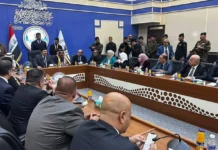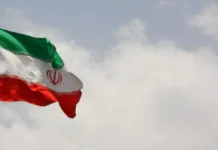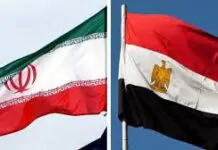Tishwash: $6.1B boost: Iraq signs 64 partnership contracts for industry
Iraq’s Industrial Week kicked off Wednesday at Baghdad International Fair, bringing together local and foreign companies from both the public and private sectors.
At the opening ceremony, Industry and Minerals Minister Khaled Battal highlighted that the government has completed more than 86% of its industrial program, and laid the groundwork for 27 new factories.
He also pointed out that the ministry signed 64 partnership contracts worth 9 trillion dinars ($6.1 billion) with local and foreign investors in strategic industries, including fertilizers, phosphates, iron, and steel. Talks are ongoing for an additional 33 contracts.
Noting that the week-long fair will continue through October 7, Battal described it as an economic and social platform that connects industrialists with policymakers, ”helping obstacles removal to industrial projects.”
“Key challenges facing national industry include shortages of electricity and gas, border crossing issues, and aging factories,” the minister underlined, adding that Iraq has achieved self-sufficiency in cement, producing over 37 million tons in 2024.
Production has also increased for chlorine used in water treatment, electrical transformers, and other industrial goods.
Meanwhile, the General Company for Iron and Steel displayed its products at the fair. Marketing Director Mohammad Subih emphasized that Iraqi rebar production matches European standards, highlighting that the ISO-certified plant produces up to 600,000 tons annually, with plans to export to neighboring countries. link
************
Tishwash: Iraqi banks between the “dollar transfers complex” and the “dream of a regional financial center”: A new vision for the changing Middle East economy
In a region experiencing major transformations, from economic corridor projects to reconstruction plans, from geopolitical shifts to the so-called “New Middle East” plans, Iraq finds itself facing both a historic opportunity and fateful challenges.
A bold banking and economic vision is needed here, seeking to transform Iraqi banks from marginal players to key players in economic decision-making and building an attractive investment environment.
A rapidly changing Middle East
Economic expert Saif al-Halfi told Iraq Observer that the Middle East is currently undergoing profound transformations, including mega-projects and new economic corridors. Baghdad stands at a historic gateway that requires a fundamental shift in the way the financial sector is managed. What is required is not just an injection of capital or the introduction of modern payment systems, but rather the establishment of an integrated legal and institutional vision that protects financing and opens the way for development initiatives.
Only then can Iraq capitalize on its strategic geographic location, the Faw Port, the Development Road project, and its oil, gas, and human resources to become a financial and commercial hub at the heart of the region.
The first challenge: Capital and institutional reform.
The first step Al-Halfi refers to is raising the capital of Iraqi banks and strengthening their resilience to risks. This is a plan the government has implemented in cooperation with the Central Bank and with the assistance of the global consulting firm Oliver Wyman. The decision was made to raise the capital of banks to 400 billion dinars. Although this decision appears to be an accounting measure, it lays a new foundation for building a stronger banking sector that is more integrated with the regional and international economies.
He adds that institutional reform, the dismantling of large shareholdings, and the introduction of automation and modern systems are not sufficient on their own, but they are an indispensable condition for transitioning from the stage of survival to the stage of competition and expansion.
The Second Challenge: From Dollar Captivity to Diversified Financing
Al-Halfi acknowledges that banking activity in Iraq still relies almost entirely on foreign remittances in dollars. This reality makes banks more like large exchange houses than true financial institutions. International experience confirms that banks only flourish when they transform into “real financiers” of the national economy through lending and adopting diverse strategies.
The economic expert suggests that expansion should be based on five main paths: “The first is personal and housing loans to meet citizens’ needs. The second is financing small and medium-sized enterprises, as they are the largest engine of employment and growth.
This is in addition to loans to large companies, especially those listed on the Iraq Stock Exchange or seeking to be listed. Syndicated loans to finance oil, electricity, refinery, and residential projects, provided the Central Bank is flexible in granting licenses.
Fifth, financing international trade, including letters of credit and participation in foreign projects such as oil refining in more active markets.” These mechanisms, if implemented boldly, will open the door to a qualitative transformation in the Iraqi economy, away from the “dollar complex.”
Challenge 3: The Electronic Payment Revolution
In parallel with financing and lending, electronic payment is emerging as a fundamental pillar of the new financial world. Al-Halfi believes that Iraqi banks must accelerate the provision of modern and diverse banking products, such as credit cards, debit cards, prepaid cards, charge cards, and even secured credit cards. Diversifying these products will not only contribute to enhancing financial inclusion and reducing reliance on cash, but will also enhance the financial system’s ability to combat money laundering and boost investor and customer confidence alike.
What is required of the Iraqi government
however, is that banks alone cannot fight this battle. What is required, according to the economic expert, is to expedite the enactment of modern laws to protect loans and electronic transactions, in addition to establishing specialized banking courts to quickly resolve disputes, and establishing an expedited judiciary to ensure the stability of transactions.
He stresses the importance of establishing a credit guarantee scheme for small and medium-sized loans, in which the state participates in guaranteeing loans to reduce financing risks, thus encouraging banks to lend instead of relying on external transfers.
The historic opportunity
presents a mix of challenges and opportunities. On the one hand, Iraqi banks face the accumulation of overreliance on the dollar, weak capital, and delayed legislation. On the other hand, Iraq possesses a unique geographical location and massive strategic projects, as well as natural and human resources that could transform it into a regional financial center if exploited wisely.
Al-Halfi poses a pivotal question: Will Iraqi banks remain captive to remittances, or will they transform into genuine financial institutions that contribute to building a diversified and robust economy?
The answer, it seems, cannot be delayed. Today’s Middle East does not wait for the hesitant, and if Iraq does not race against time to reform its banking sector, it may find itself excluded from the map of the new Middle East. link
************
Tishwash: Jordan-Iraq Bank branch opened in Erbil
Jordan-Iraq Bank is expanding its branch network with the opening of a new branch in Erbil.
In a strategic move that reflects Jordan Bank Group’s vision to strengthen its regional presence and consolidate its position as a leading financial institution, the bank announced the opening of its new branch in Erbil, the capital of the Iraqi Kurdistan Region.
Saleh Hamad said the opening is part of a well-designed expansion plan aimed at establishing the bank’s presence in the Iraqi market and expanding its banking services to meet customer needs according to the highest international standards.
The Erbil branch provides a qualitative addition to the Bank of Jordan’s regional corridor as it provides a comprehensive financial system that supports economic activity and opens up new opportunities for sustainable growth.
The Group is also committed to contributing to the development of the banking environment in Iraq and financial development through advanced digital solutions that improve the quality of service and support the development of the business environment in Iraq.
Erbil is gaining strategic importance as an active economic center and a major gateway for trade and investment, making it a key stage in the bank’s plans to expand its presence in Iraq.
This expansion will allow for wider coverage of key markets and provide comprehensive banking services, strengthening Jordan Bank’s position as a leading banking institution in the region that can empower various economic sectors to access advanced financial solutions, increase investment opportunities and revitalize the business environment.
Jordan Bank’s expansion plans are based on a rich banking heritage and strong experience spanning more than 65 years, which has contributed to and will continue to build a comprehensive financial group with an extensive network of branches in Jordan, Palestine, Syria, Bahrain and Iraq.
The Bank continues to invest in the development of advanced digital systems, positioning itself as a leading regional financial institution capable of managing banking transformation, strengthening economic integration and establishing itself as a driver of development and stimulation of growth locally and regionally link






